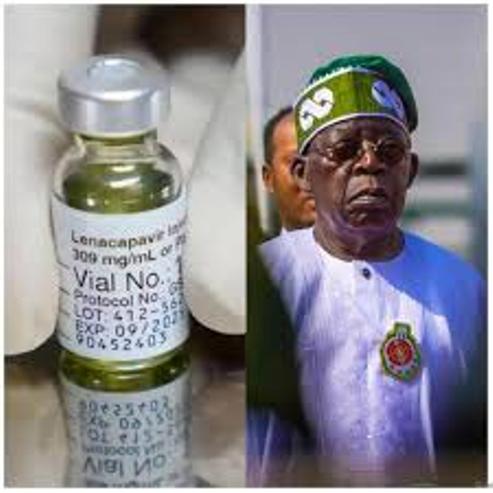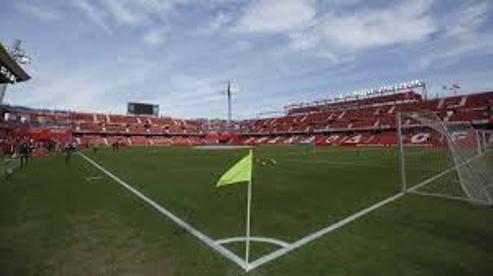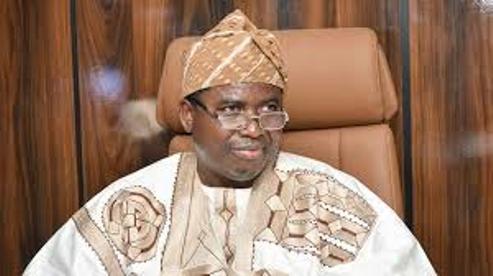LAGOS NOVEMBER 26TH (NEWSRANGERS)-Nigeria outlawed same-sex relationships back in 2014. But recent social media posts suggested that President Bola Tinubu had agreed to sign an agreement between the European Union and countries from Africa, the Caribbean and Pacific regions that would supposedly see gay sex legalised in the country. But the claim is false; Nigeria was not among the countries that signed the agreement, which stipulates that participating countries must commit to promoting human rights and “fundamental freedoms for all”. Nigerian authorities said they are still studying the agreement.
“Tinubu’s Muslim-Muslim government has agreed to sign EU-ACP agreement to legalize LGBTQ in Nigeria because of desperation for legitimacy and acceptance,” reads part of a thread published on X (formerly Twitter) on November 16, 2023.
Tinubu was sworn in as Nigerian president after a disputed election in February. The country’s Supreme Court validated his victory in a unanimous decision on September 26, 2023, dismissing opposition parties’ appeals (archived here).
Important Update:
Nigeria has not signed the ‘Samoa Agreement’. Relevant Nigerian stakeholders are studying the instrument with a view to ensuring that its provisions do not contravene Nigeria’s domestic legislation.@NigeriaMFA @NigeriaGov @NGRPresident pic.twitter.com/x8sQwY4Udy— Presidency Nigeria (@NGRPresident) November 16, 2023
Roughly divided into the conservative Muslim majority north and a largely Christian south, same-sex marriages and “amorous relationships” are illegal (archived here) in Nigeria.
The agreement mentioned in the claim referred to a “partnership agreement” (archived here) between the European Union and its member states and members of the Organisation of African, Caribbean and Pacific States (OACPS). Nigeria is a member of the OACPS.
Called the Samoa Agreement, it “covers subjects such as sustainable development and growth, human rights and peace and security,” the European Council said. It is seen as a blueprint for strengthening bilateral relations and succeeds the Cotonou Agreement signed in June 2000 (archived here).
Similar posts on X, including here, claimed that the country was about to sign the agreement.
However, claims that Nigeria has signed the Samoa Agreement are false.
Nigeria still ‘studying’ agreement
After the claims began circulating, the Nigerian government publicly stated that it was yet to sign the agreement.
“Relevant Nigerian stakeholders are currently studying the instrument with a view to ensuring that its provisions do not contravene Nigeria’s domestic legislation,” said a spokesperson for the Ministry of Foreign Affairs Francisca Omayuli on November 16, 2023 (archived here).
Section 12 (1) of the Nigerian Constitution stipulates that “no treaty between the Federation and any other country shall have the force of law to the extent to which any such treaty has been enacted into law by the National Assembly” (archived here).
Apart from Nigeria, about 19 African countries, nine Caribbean states and six in the Pacific are yet to sign the agreement (archived here).
Meanwhile, a list of the signatories sent to AFP Fact Check on November 20 by a spokesperson for the European Council, Maria Ruiz Nievas, does not include Nigeria.
The list shows that Nigeria’s West African neighbours Togo, Ghana – which also has anti-gay laws – and the Gambia have signed the agreement.
Fundamental freedoms
Although the agreement does not expressly promote or mention same-sex relationships, its Article 9 (archived here) states that participating countries must commit to “the promotion of universal respect for, and observance of, human rights and fundamental freedoms for all, without discrimination based on any ground including sex, ethnic or social origin, religion or belief, political or any other opinion, disability, age, or other status”.
A similar clause was in the Cotonou Agreement signed on June 23, 2000 (archived here). Nigeria was a signatory to that agreement (archived here).
Section 13(1) of the Cotonou Agreement said that parties to the agreement reaffirmed their “commitments in international law to ensure respect for human rights and to eliminate all forms of discrimination based particularly on origin, sex, race, language and religion”.
The Nigerian Same-Sex Marriage (Prohibition) Act was signed into law in January 2014 when the Cotonou Agreement was still in effect (archived here).
LGBTQ+ clampdowns
In 2018, 47 men were arrested in a police raid in Lagos and charged under Nigeria’s anti-gay law. But a judge dismissed the government’s suit against the men in 2020 (archived here).
In December 2022, Sharia police arrested 19 people in Kano in northwestern Nigeria for organising a gay wedding (archived here).
Last month, security officials arrested more than 70 people after accusing them of organising a gay wedding in northeastern Gombe state (archived here).
Gombe and Kano are among majority-Muslim northern states where Shariah law is in force alongside common law. Homosexuality is punishable by death under Shariah law, although the sentence has never been enforced.
AFP
For advert placement, events coverage, media placement, public relation consultancy and further inquiries please whatsApp 2348023773039 or email: labakevwe2yahoo.com











